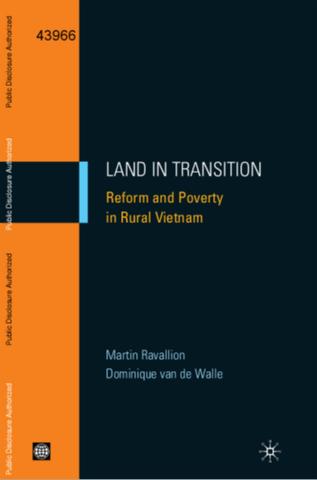We publish award-winning research which changes the world across the humanities, social sciences and business for academics, professionals and librarians. We offer authors and readers the very best in academic content whilst also supporting the community with innovative new formats and tools.
With offices in London, New York and Shanghai, and sales teams across 50 countries, we have a global reach. As part of Springer Nature, we are proud to uphold an unbroken tradition of over 170 years of academic publishing.
Members:
Resources
Displaying 6 - 10 of 11Gender Aspects of the Trade and Poverty Nexus : A Macro-Micro Approach
This report is on the findings of a major international research project examining the links between trade, gender, and poverty. Trade liberalization can create economic opportunities, but women and men cannot take advantage of these opportunities on an equal basis. Women and men differ in their endowments, control over resources, access to labor markets, and their roles within the household.
Moving Out of Poverty : Volume 2. Success from the Bottom Up
The global moving out of poverty study is unique in several respects. It is one of the few large-scale comparative research efforts to focus on mobility out of poverty rather than on poverty alone. The study draws together the experiences of poor women and men who have managed to move out of poverty over time and the processes and local institutions that have helped or hindered their efforts.
Delivering on the Promise of Pro-Poor Growth : Insights and Lessons from Country Experiences
Delivering on the Promise of Pro-Poor
Growth contributes to the debate on how to accelerate
poverty reduction by providing insights from eight countries
that have been relatively successful in delivering pro-poor
growth: Bangladesh, Brazil, Ghana, India, Indonesia,
Tunisia, Uganda, and Vietnam. It integrates growth analytics
with the microanalysis of household data to determine how
country policies and conditions interact to reduce poverty
Land in Transition : Reform and Poverty in Rural Vietnam
The policy reforms called for in the
transition from a socialist command economy to a developing
market economy bring both opportunities and risks to a
country's citizens. In poor economies, the initial
focus of reform efforts is naturally the rural sector, which
is where one finds the bulk of the population and almost all
the poor. Economic development will typically entail moving
many rural households out of farming into more remunerative
Measuring Inequality of
Opportunities in Latin America and the Caribbean
Over the past decade, faster growth and
smarter social policy have reversed the trend in Latin
America's poverty. Too slowly and insufficiently, but
undeniably, the percentage of Latinos who are poor has at
long last begun to fall. This has shifted the political and
policy debates from poverty toward inequality, something to
be expected in a region that exhibits the world's most
regressive distribution of development outcomes such as



